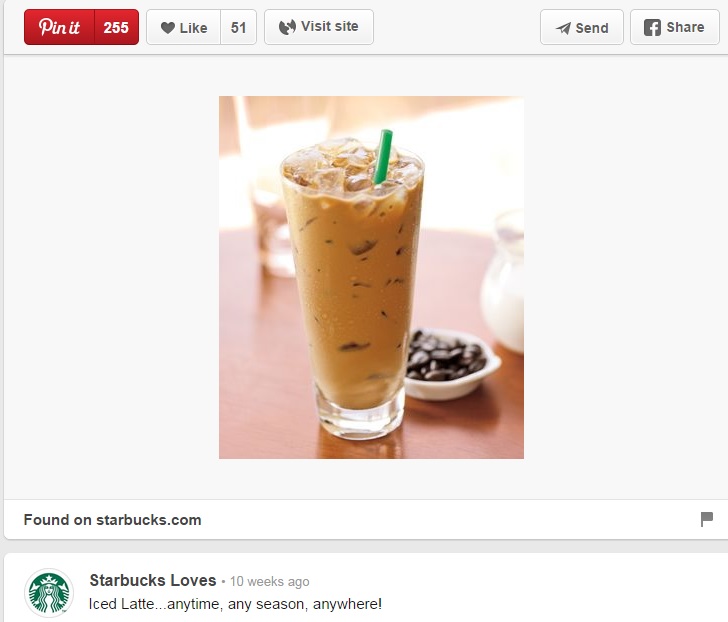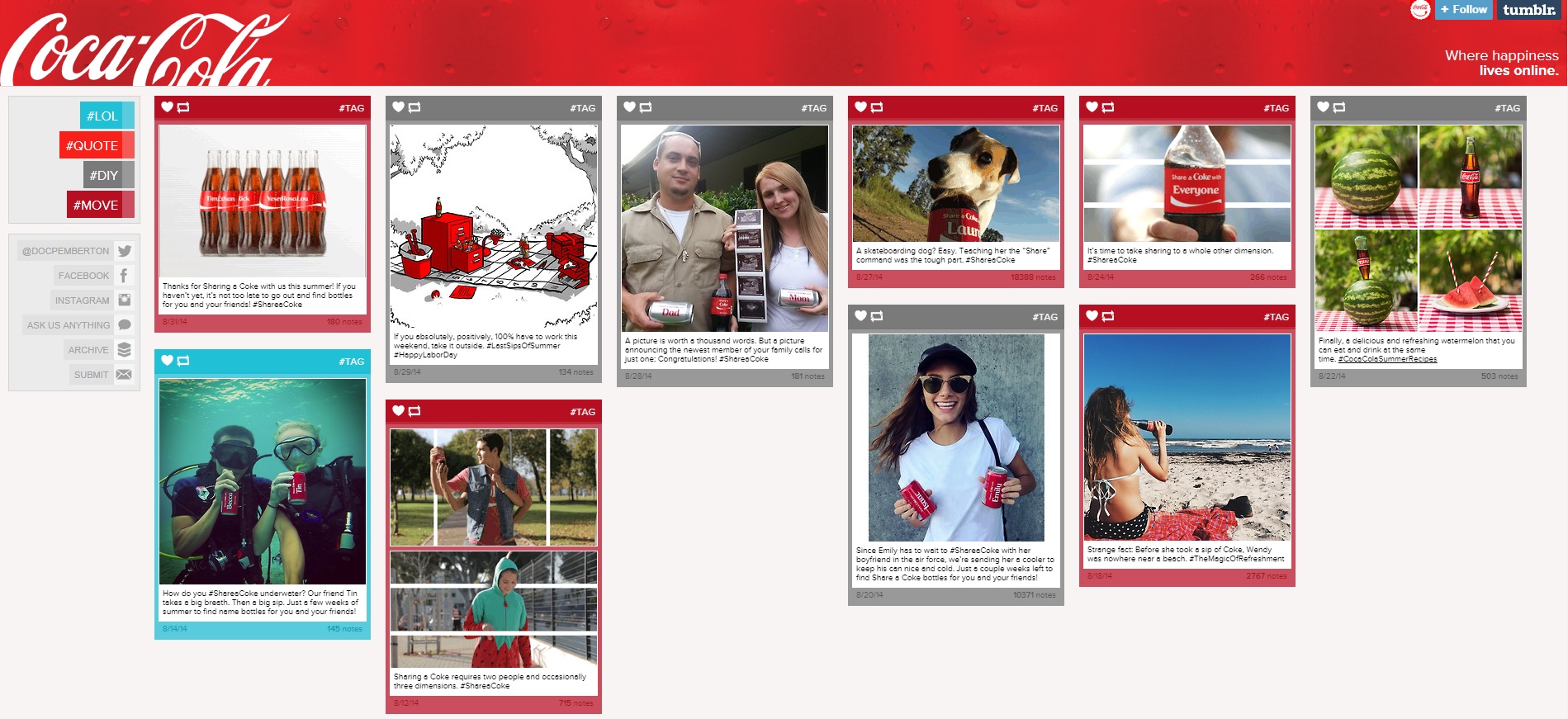Social Media Marketing is an essential component of Digital Marketing in the modern age, with 47% of UK adults making use of Social Media websites. The continual growth of these Social Networks shows our love for connectivity, with new platforms with different forms of interactivity continually rising from nowhere.
So where does your business stand on Social Networking, and what is the best platform suited to your business goals?
Where does your Business currently stand on Social Networks?
Before you jump head-first into Social Media Marketing on new networks, there are a number of different aspects you need to consider. There’s no point in using every Social Network at your disposal, if it’s going to be a waste of time and money due to little ROI.
 Identify your typical customers, such as:
Identify your typical customers, such as:
- Age
- Income
- Gender
Next, assess what these people are like in general. For example:
- Habits
- Interests
- Technological knowledge
Browse different networks, and see if you can find people you would wish to connect with. Consider:
- What networks current clients or customers are using
- What Social Networks competitors use
- What Social Networks is your brand currently using
- Are you using current Social Platforms to their full potential? Could you?
Once you’ve done some thorough research on who you’re trying to reach, and where you currently stand, you can begin to build a Social Media Strategy to reach and engage your customer base.
Building a Social Media Strategy
First outline your business aims, of what you wish to achieve through a Social Media Presence.
If you’re struggling to imagine the potential, then check out our guide to some of the best Social Media Campaigns around:
Awesome Social Media Campaigns In 7¾ Steps… With Cartoons!
For example, your aims may consist of the following:
- Communication with current customers
- Gain new customers
- Sell products on Ecommerce Store
Alongside this, it’s also important to consider how you will use Social Media:
- What kind of strategies would you implement?
- Do you have an in-house social media guru who can keep your business updated?
- How many channels can you utilise effectively, and consistently?
- Or do you want to do it yourself, or give it to an existing member of staff?
- Will you outsource it?
If you need more information, check out our guide:
Who should manage social media marketing in your business?
Once you have a clear picture of what you want to do, and how this is possible, you can pick and choose the correct networks which appeal to your target audience, and lend themselves to your business strategy.
Which Social Media Platforms are Right for Your Business?
There aren’t many businesses that couldn’t benefit from a presence on Twitter. But if you won’t use it, then there’s simply no point. You should ideally be tweeting multiple times a day, and a minimum once every few days. If you can’t keep up with this, then a stagnant Twitter profile is simply not worth it. If anything, it would reflect poorly on your brand.
If there are constant updates within your industry that you can report on, (perhaps detailed in your Content Marketing strategy), then Twitter is the best place to promote it. It’s a great hub of topic based news, with high levels of engagement and two-way interaction between customer and business. But even simply retweeting and quickly commenting on new developments could show your business is on the ball, and keep people interested in your brand.
46% of people log in on a daily basis, meaning that your business could benefit from prolonged exposure to followers. This is great for brand awareness, and you can harness any developments within the news, or whatever else is trending on twitter.
WORLD CUP PROMO: When your glass gets empty, bring it back to the bar and get the same again for EXACTLY THE SAME PRICE as your last drink! — The Anchor Inn (@The_Anchor_Inn) July 5, 2014
Google+
Google+ is pretty much a pre-requisite for any local businesses, or those creating original content (as they should be). With Google Authorship, and increased SEO Rankings for Search Engine Results, there’s no excuse to be on Google+, and keep it updated with any content generated. With a huge amount of discoverability from the Search option (it is still Google after all), and a huge range of Communities based around everything and anything, your business is sure to find a home here. 67% of Google+ users are male, with an average age of 28, and tend to be in the technical or engineering sectors; meaning that if your customers are technology-aware, it could be a great place to promote your business. Google+ is larger than you may think; with over 540 million users, although only 300 million are active. However, the integration into other platforms and Google products, such as the SERP and YouTube, is a unique selling point of the platform. Any time your followers search for terms which you’ve posted about, you will show up in their Results page; which can often be very useful. Not only this, but Google+ +1s (their answer to Facebook “Likes”) influence SEO ratings quite significantly, due to Hummingbird integrating Social Shares into rankings.
The majority of LinkedIn users are well educated, with a core demographic between ages 30-49; people progressing in their careers, and are familiar with social networking. They tend to have a higher income, with 38% of internet-users earning $75k or more being registered on LinkedIn. Many of the users tend to be from finance, technology, or manufacturing industries; so if your company falls into one of these categories, LinkedIn could be very worthwhile. Of course, LinkedIn lends itself to B2B marketing, due to the fact you can connect and engage with fellow businesses and people who work there. Aside from this, it’s a great place to highlight content or provide insights about work-related and industry-specific topics. However, it’s not a network that people check daily, but this could be beneficial, as it’s not something you need to constantly update like Twitter. The LinkedIn Groups also allow you to reach more people, however they don’t compare to the engagement found on Google+ communities.  If you are a B2B business, then you may wish to check out our specific B2B Social Media Marketing Guide:
If you are a B2B business, then you may wish to check out our specific B2B Social Media Marketing Guide:
Facebook may not be the “hip” place to be anymore, but it’s still dominant in the Social Media space, with 70% of online adults using its services. Whether it’s applicable for your business is debatable, as it is mostly used for connecting with family and friends on a personal level; but there’s a lot of room for B2C companies to expand. It has the most widespread demographic, from young to old, from professional to casual. If you are a local business, such as a restaurant or some other form of “activity-based business” with a brick-and-mortar setting, then you could benefit from the check-ins and ratings that Facebook allows from users. How better to spread the word about your business, than have customers sign-in to your local establishment with positive comments for all their friends to see?
Pinterest is one of the most underrated platforms out there, traditionally thought of as only hosting pictures of clothes and food. But it’s much, much more. If you can present your business through images, then it’s worth considering. If you are in the fashion, design, clothing, or similar industries, then Pinterest is the place to be.
84% of users are female, so if your business appeals to this demographic, you should consider it. And with 34% of Pinterest user households bringing in $100,000. Pinterest is top for Return on Investment, with 70% of users utilising Pinterest to get inspiration on their purchases. It is one of the most popular image-based Social Networks, with the most potential for discoverability and shareability.
Repinning takes a few clicks, and for this reason alone, you can expand the reach of your images with ease. Of course, this may require you to customise images for the network, with tall portrait images faring better, but the few minutes it will take to do so could be entirely worth it.

YouTube
Not so much of a Social Media platform, but it still has a vast amount of Social Aspects which can be utilised. YouTube is quickly becoming an alternative viewing platform to any other format, even television in general. Mostly used by people aged 18-34, it’s where a lot of video content is hosted, and is the first place anyone will think to look.
To put it simply, if you have high quality or lengthy videos, this is where they should be going. Video content and video marketing is a great way for exposure in our highly visual society, and YouTube’s ownership by Google means it has great visibility in SERPs. Alternatives include Vimeo, for more artsy ventures, and Dailymotion, which is a great place for gaining new viewers.

Instagram has become one of the biggest Social Networks quite rapidly. Although Facebook now owns the network, it is still a force to be reckoned with in itself. 28% of Instagram users are aged 18-24, and 57% of users log in daily.
It is widely considered to be one of the most important networks to users, who pay less interest to Facebook and Twitter, and so content here may be much better received. So if you have visual aspects to your business, it’s a great place to be found.
Tumblr
Tumblr has become a huge platform for younger generations, who will share and engage with any form of fun or creative content. If your brand is something your fans genuinely love, or you’d like to be seen this way, then promoting your content on this platform could be the way forward. If you have visual elements, or can promote some form of design, then this could be a great way forward.

Vine
If you’re willing to have a little fun with your brand, Vine could be the perfect accompaniment. Due to the fact it’s owned by Twitter, there is seamless integration, playing Vine videos directly into the Twitter home feed.
These 6 second videos can be great for brand awareness, especially if your brand tends to be playful. Creating a great video in 6 seconds is tough, but the rapid growth of this network shows that in our modern society with short attention spans, 6 seconds is all you need. It’s time to get creative.
Although the user base is not as expansive as other Social Networks, the videos still tend to get shared and go viral over many different networks, regardless of whether the users have Vine accounts or not.
Messaging Apps
A new trend emerging within Digital Marketing is to make use of various Messaging apps, to relay a personalised and direct message to customers.
Whatsapp is quickly becoming the replacement for the traditional SMS text, with 3G and WiFi usage on the rise. That’s why utilising a business Whatsapp account allows you to directly contact and interact with customers. Could it be intrusive? Possibly. Perhaps many people wouldn’t appreciate direct contact in this way.
But is it really so different from Email or SMS alerts? Not really. Watch out for this in the future, as it may become a more utilised method of marketing, but it’s worth jumping on the bandwagon beforehand to reap the early-adoption benefits.

Snapchat
Sending short snippets of videos or images has become something of a trend with younger generations, thanks to a little app called Snapchat. Sending out images to your contact list as a business, could allow you to contact customers directly, and send something a little more fun. 6 of 10 users are aged 18-24, so if you’re looking to engage with the younger generations, Snapchat is a good bet.

If you would like more information on Social Media Marketing, then check out our Social Media Services here. If you have any other questions or queries, then please do get in touch with the team at Xanthos, as we would love to help you out.











